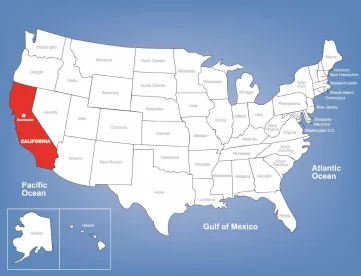California recently enacted a landmark pay transparency law that requires employers to disclose pay ranges in job postings, joining a growing number of states and municipalities that impose such requirements aimed at improving pay equity. But beyond the pay scale requirements, Senate Bill (SB) 1162, signed in September 2022 by Governor Gavin Newsom, further broke new ground in expanding pay data reporting processes and requirements for California employers, and thus increasing employers’ compliance burden.
Beginning in 2023 for the 2022 reporting year, SB 1162 requires employers to report new demographic and pay data, and imposes new reporting obligations regarding contractor workers. Below is an overview of some of the important reporting obligations for employers under the new law.
Reporting Obligations
The law requires employers with one hundred or more employees to submit annual pay data reports to the California Civil Rights Department (CRD), which was formerly known as the Department of Fair Employment and Housing (DFEH). The reports must provide “[w]ithin each job category, for each combination of race, ethnicity, and sex, the median and mean hourly rate.” This is a major change as it will force employers to provide direct comparison of pay rates between different race/ethnicity and gender groups. While employers may argue that the broad nature of the job categories used in the reports—which stem from the categories used by the U.S. Equal Employment Opportunity Commission—makes these hourly rate comparisons meaningless, these comparisons will plainly show pay differences between different groups of employees.
Under SB 1162, covered employers are now required to submit their reports to the CRD regardless of whether they file federal Employer Information (EEO-1) reports. Further, EEO-1 reports can no longer be used to satisfy the California pay data reporting requirement.
Under the prior reporting law, which was signed in September 2020, employers were only required to prepare one report breaking down the information for different locations for the employer. SB 1162 requires that employers prepare and submit reports for each individual location.
The new law further pushes the deadline to file from March 31 each year to the second Wednesday in May each year. In 2023, the deadline will be May 10.
Contractor Reports
Under SB 1162, private employers that had one hundred or more employees employed through labor contractors during the prior calendar year are required to submit a separate pay data report covering the contractor employees. Employers must also disclose in the pay data report the names of all labor contractors used to supply employees. The law defines “[l]abor contractor” as “an individual or entity that supplies, either with or without a contract, a client employer with workers to perform labor within the client employer’s usual course of business.”
Labor contractors are required to provide all of the necessary pay data to employers so that employers can submit the report to the CRD. If an employer is unable to submit a complete and accurate report because a labor contractor has not provided all of the necessary information, a court may apportion an appropriate amount of penalties to the labor contractor.
However, the new contractor employee reporting obligations under SB 1162 leave several unanswered questions, including:
- Will one labor contractor report satisfy the reporting obligations or will separate reports need to be filed for each work location?
- Will the report be the same as the standard report or will the contractor report require additional information beyond the standard report?
- Will the jurisdictional hire threshold of one hundred contractor employees be focused on labor contractor hires across the United States or just in California?
Penalties
SB 1162 provides that the CRD may seek an order requiring an employer to comply with the reporting requirements and shall be entitled to recover the costs associated with seeking the order. The CRD may also request that a court impose civil penalties on an employer that fails to comply for an amount “not to exceed one hundred dollars ($100) per employee” for a first-time violation. For subsequent failures to submit the reports, civil penalties may rise to $200 per employee. This is a significant change as previously the only available remedy was seeking a court order requiring employers to file their reports.
Key Takeaways
SB 1162 expands pay data reporting obligations for employers and exposes employers to potentially costly civil penalties for failure to comply. The law further extends reporting requirements to cover contractor employees and requires labor contractors to provide the necessary information to employers so that they can meet their reporting obligations. Several changes, including removing EEO-1 filing as a jurisdictional ground, no longer allowing the use of any EEO-1 filings to satisfy the reporting requirement, and adding the labor contractor reporting requirement, show that California is moving away from the EEO-1 pay data collection model and putting its own stamp on these reports. Employers may want to review their employment information policies to ensure they will be able to comply with these new reporting obligations. Employers may further want to review contracts and agreements with their labor contractors and staffing agencies.





 />i
/>i

